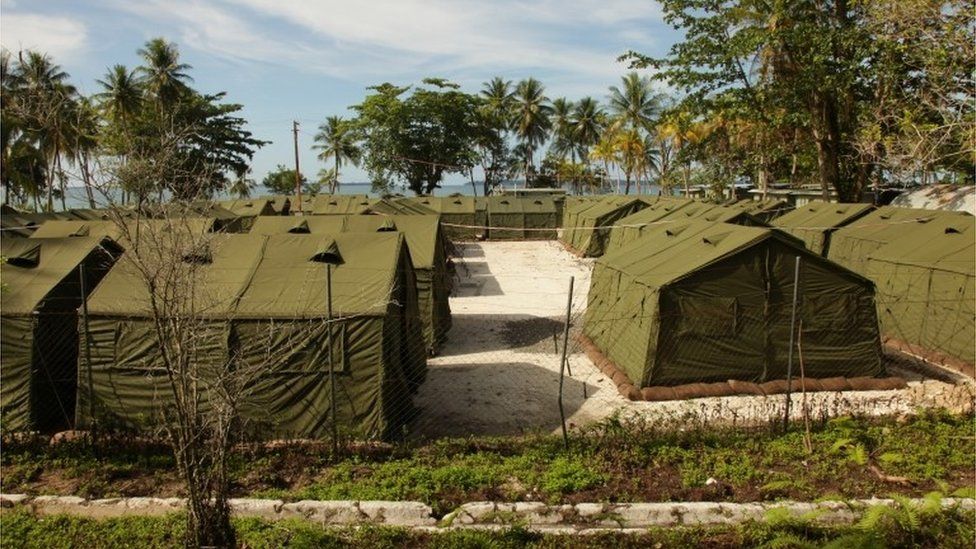PNG asylum seekers 'no longer locked up'
- Published

Asylum seekers held on Manus Island in Papua New Guinea (PNG) are no longer being held in detention, reports say.
Around 900 men are now allowed to leave the Manus Island detention centre during the day.
Australia sends asylum seekers who arrive by boat to the centre under its tough immigration policies.
But PNG's Supreme Court ruled in April that restricting the movements of asylum seekers was unlawful under the country's constitution.
The Australian and PNG governments are now negotiating about what will happen to the men.
- PNG's Prime Minister Peter O'Neill says those deemed legitimate refugees are free to stay, but it is not clear how many will take up this offer.
- Australia, meanwhile, says there is no chance that it will accept any of the men.
- Reports say there may be room for them at another offshore processing centre on Nauru.
- But the fate of the detainees is unlikely to be decided until Australia's federal election is held on 2 July.
The Australian Broadcasting Corp. (ABC) reported that the men could now take one of three buses into the main town each day.
According to the report, the men are not able to simply walk out of the camp because it is a PNG naval base. They must also sign a form taking responsibility for their own safety.
They are allowed to stay at a transit centre in the town, run by PNG's immigration department.
The ABC said those ruled considered genuine refugees could leave Manus Island, but only if they signed an agreement to be resettled in PNG.
Only eight refugees have chosen to accept the offer so far, the report said.
Australia sends all asylum seekers who arrive in the country by boat to offshore processing centres under the so-called Pacific solution.
The tough policy has almost eliminated the people smuggling trade to Australia from Indonesia, but is fiercely criticised by human rights advocates.
- Published17 August 2016
- Published2 May 2016
- Published3 May 2016
- Published4 May 2016